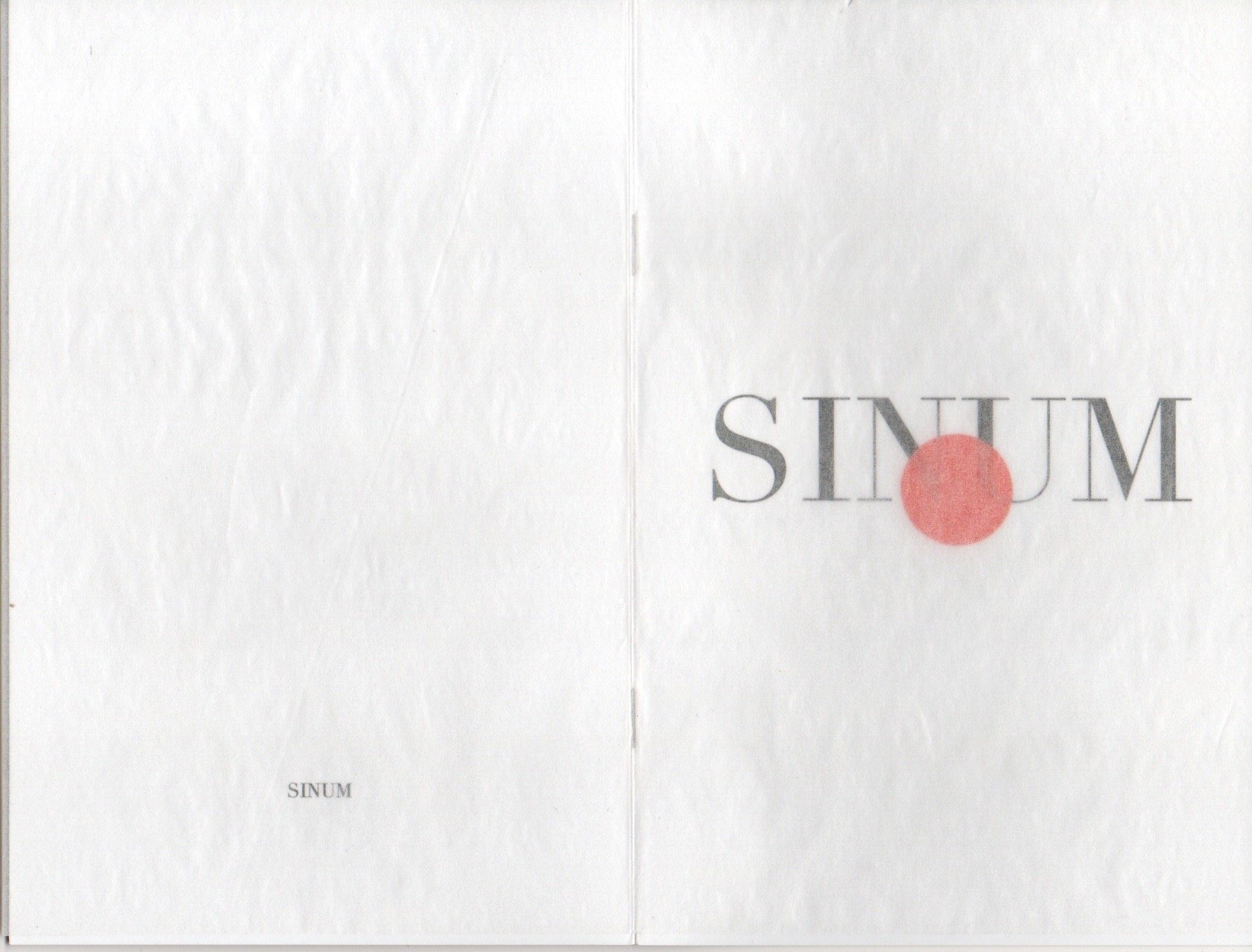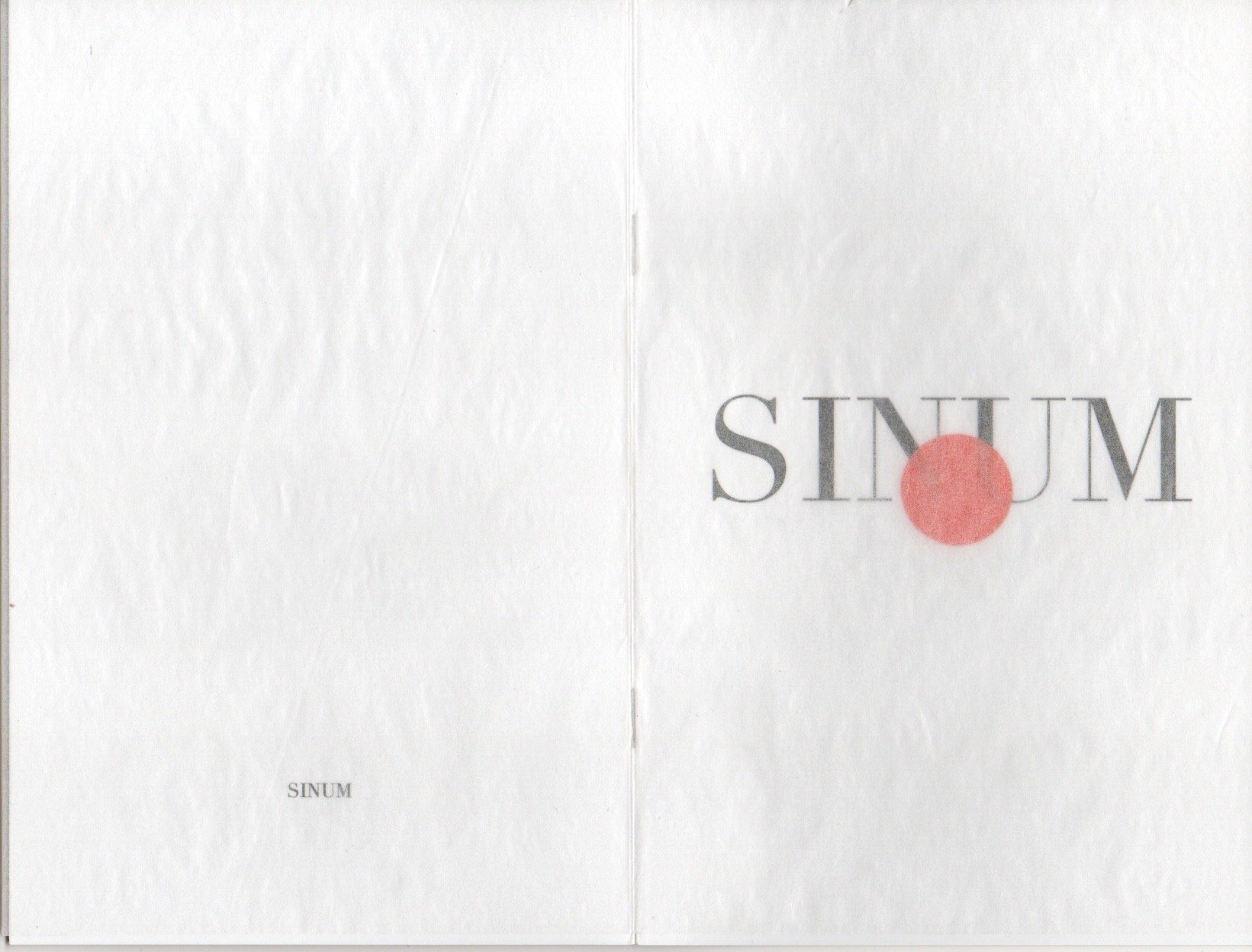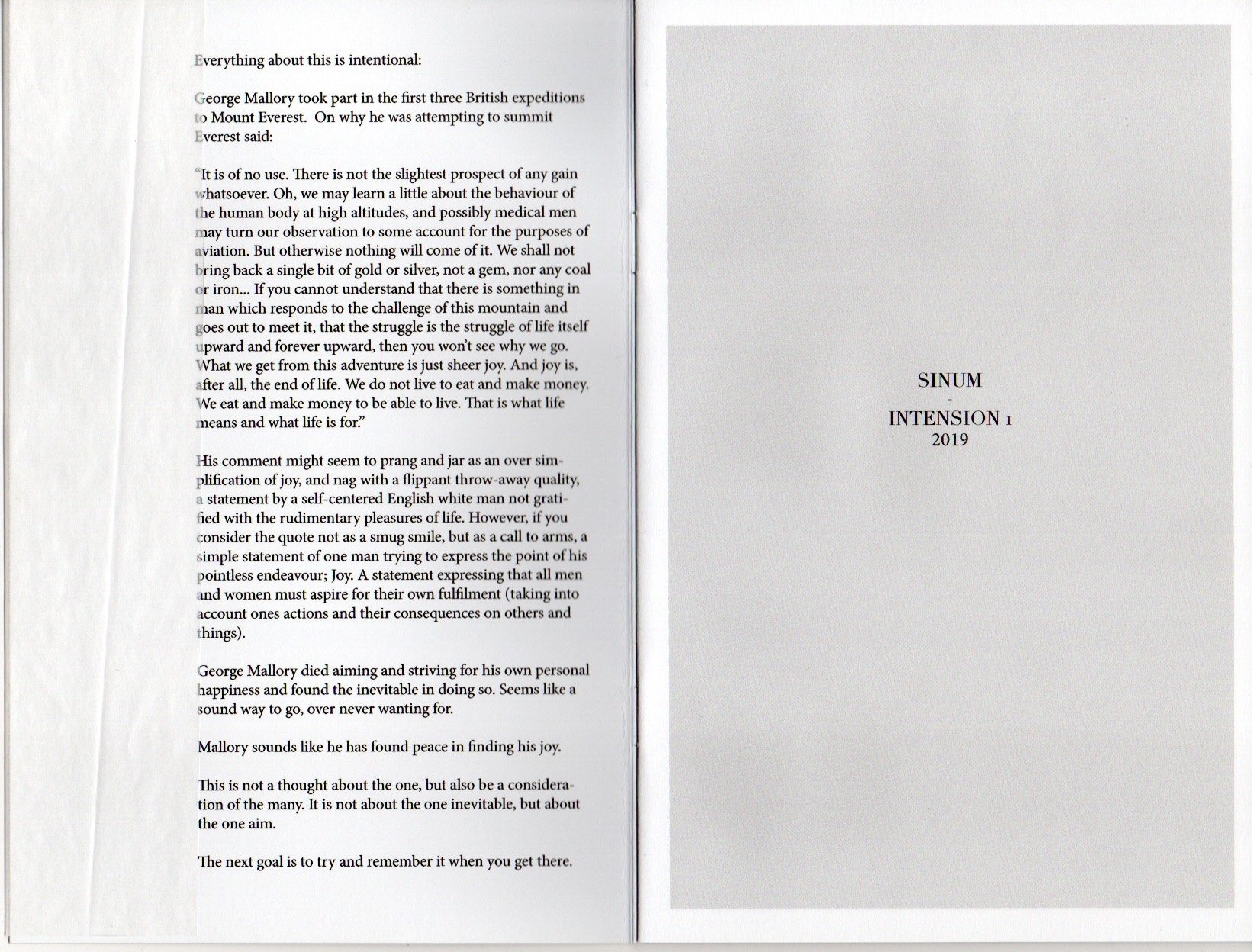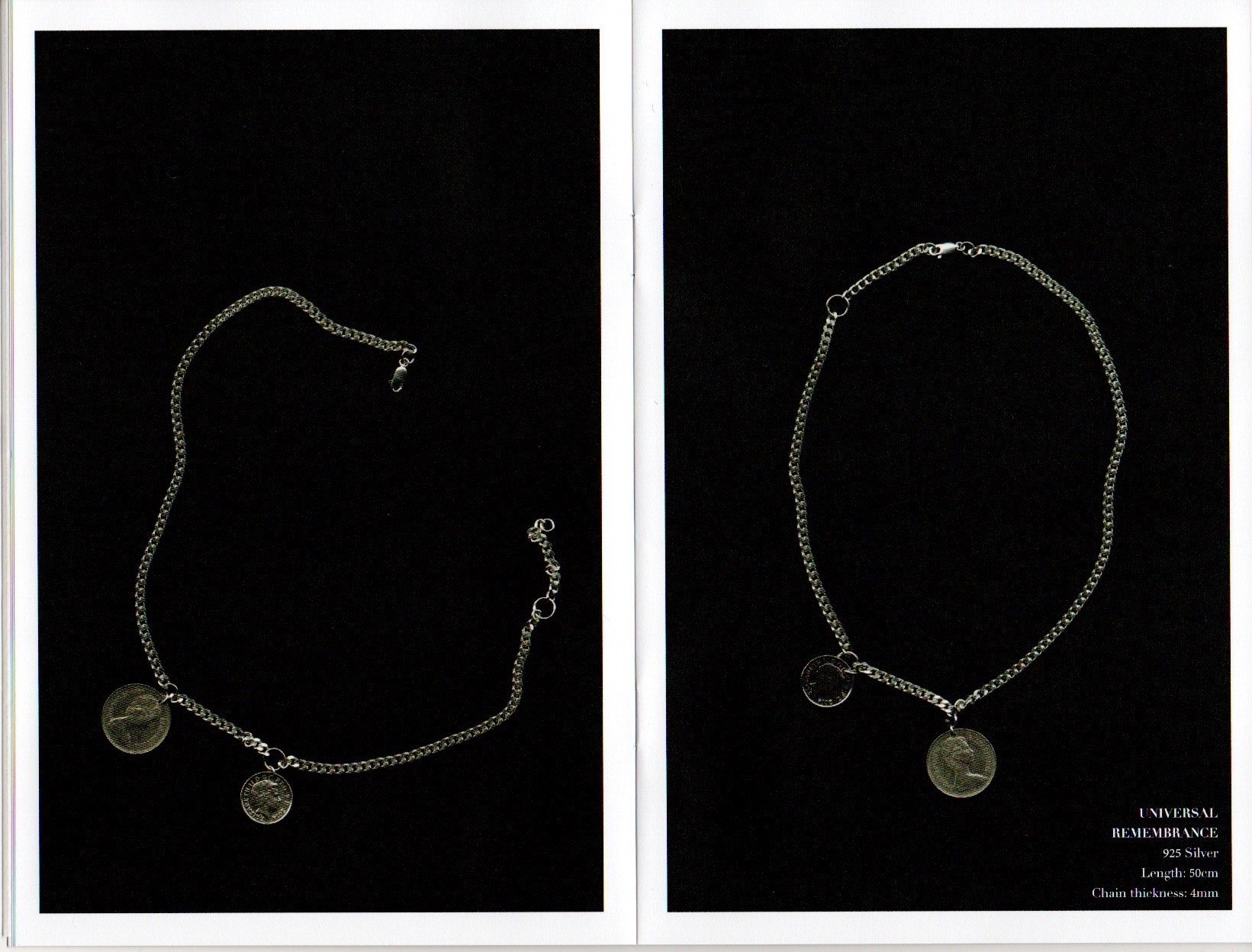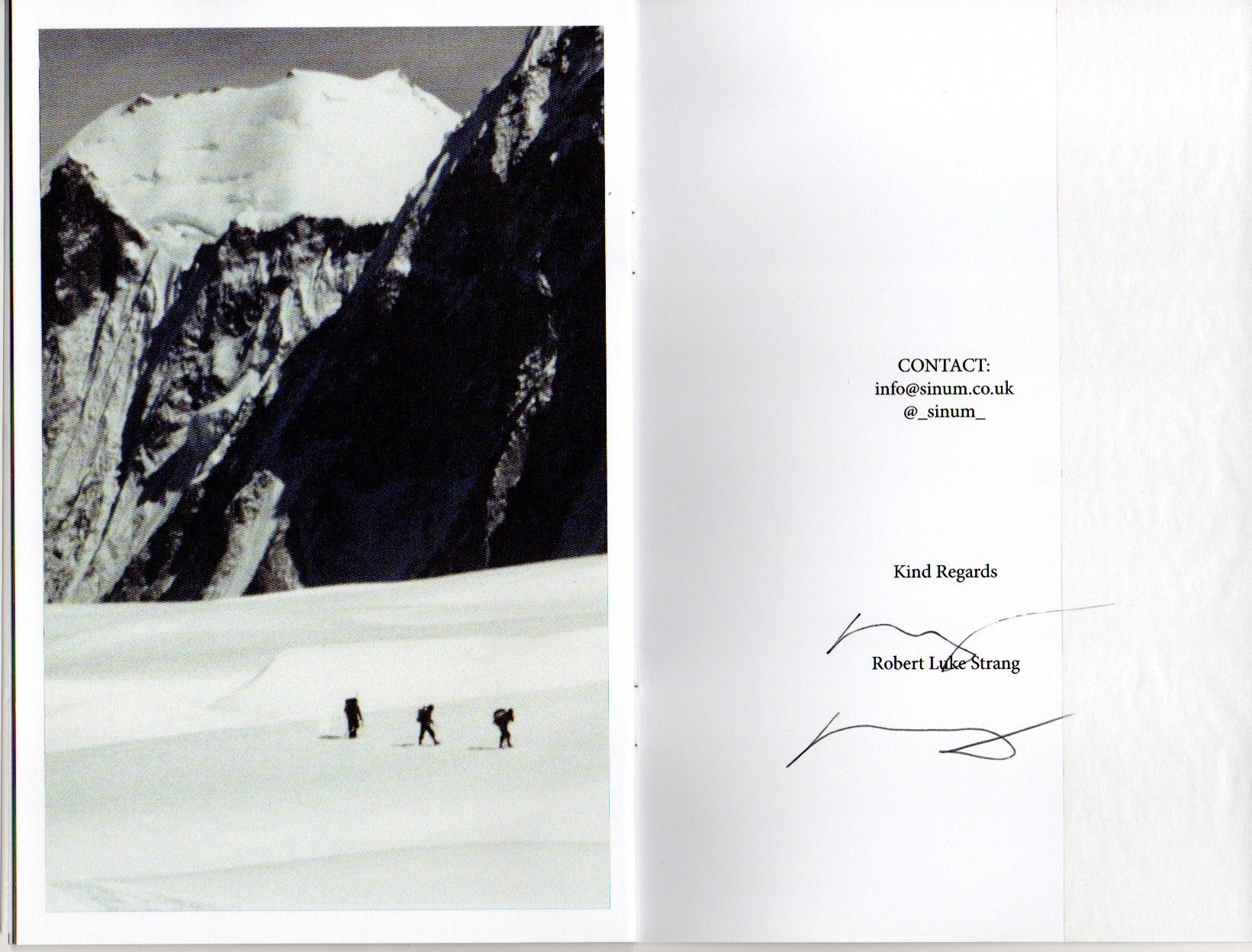INTENTION I: ‘JOY IS, AFTER ALL, THE END OF LIFE’
Everything about this is intentional:
George Mallory took part in the first three British expeditions
to Mount Everest. On why he was attempting to summit
Everest said:
“It is of no use. There is not the slightest prospect of any gain
whatsoever. Oh, we may learn a little about the behaviour of
the human body at high altitudes, and possibly medical men
may turn our observation to some account for the purposes of
aviation. But otherwise nothing will come of it. We shall not
bring back a single bit of gold or silver, not a gem, nor any coal
or iron... If you cannot understand that there is something in
man which responds to the challenge of this mountain and
goes out to meet it, that the struggle is the struggle of life itself
upward and forever upward, then you won’t see why we go.
What we get from this adventure is just sheer joy. And joy is,
after all, the end of life. We do not live to eat and make money.
We eat and make money to be able to live. That is what life
means and what life is for.”
His comment might seem to prang and jar as an over simplification
of joy, and nag with a flippant throw-away quality, a
statement by a self-centered Englishman not gratified with the
rudimentary pleasures of life. However, if you consider the
quote not as a smug smile, but as a call to arms, a simple statement
of one man trying to express the point of his pointless
endeavour; Joy. A statement expressing that all men and women
must aspire for their own fulfilment (taking into account
ones actions and their consequences on others and things).
George Mallory died aiming and striving for his own personal
happiness and found the inevitable in doing so. Seems like a
sound way to go, over never wanting for.
Mallory sounds like he has found peace in finding his joy.
This is not a thought about the one, but also be a consideration
of the many. It is not about the one inevitable, but about
the one aim.
The next goal is to try and remember it when you get there.

